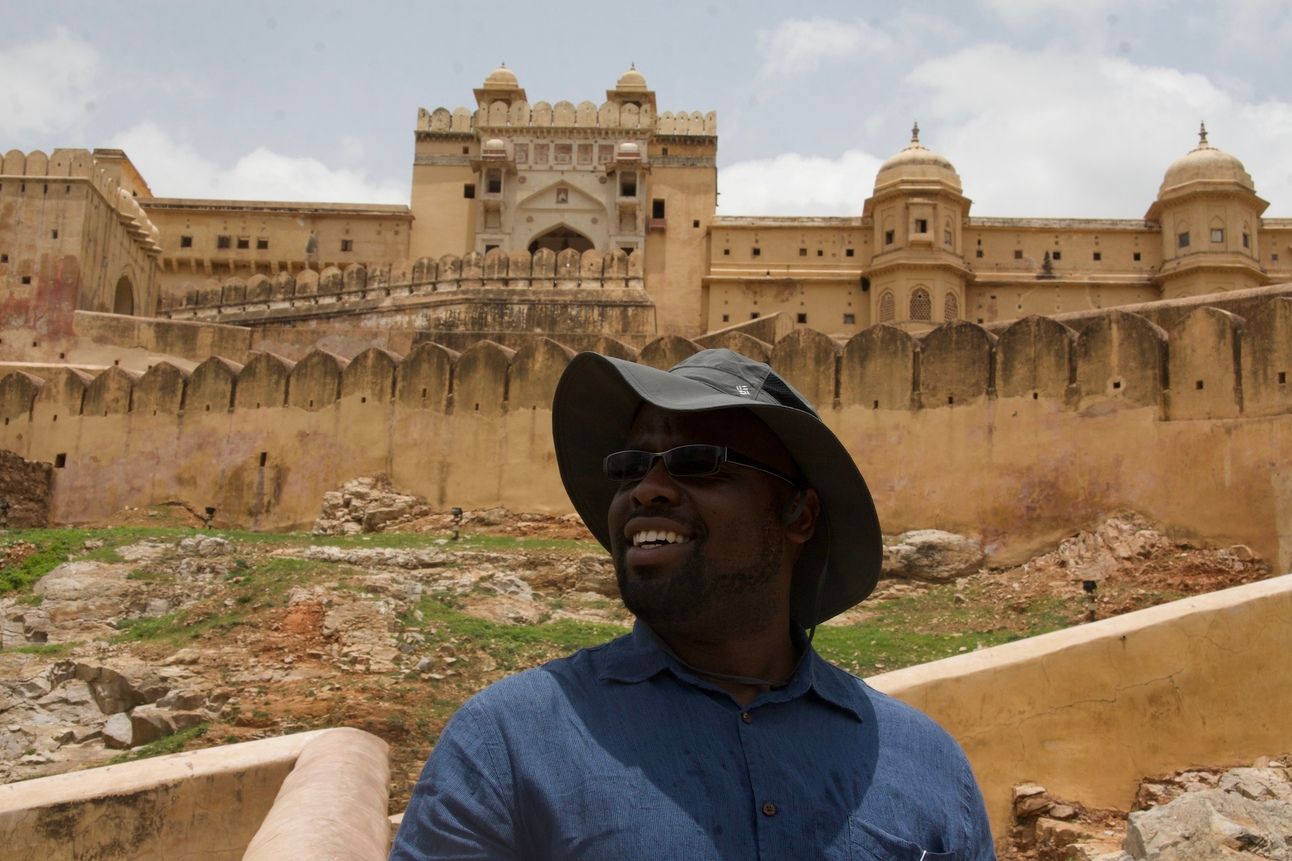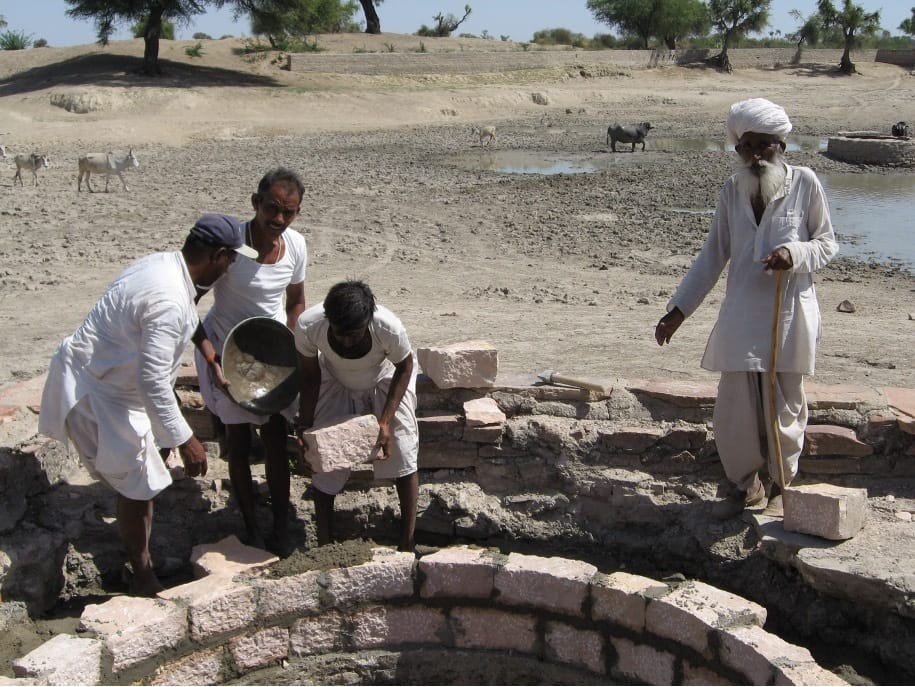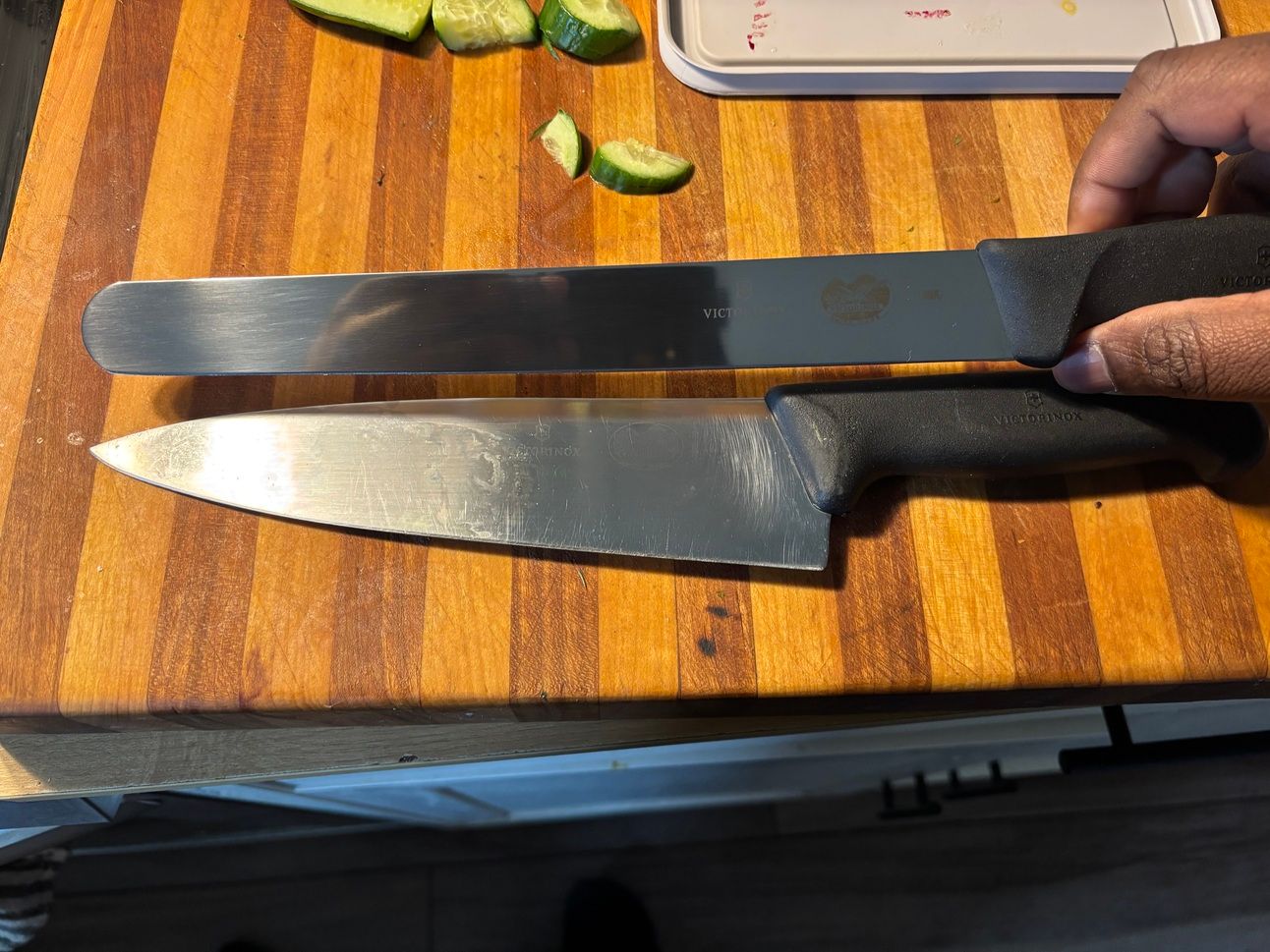Disclaimer: This post may contain affiliate links, which means I may receive a commission for purchases made through the links. I only recommend products I have personally used or recently purchased but not yet used.
Gora Kalla
That was the nickname I earned during my dissertation research. It means “the white outsider who is Black.” It remains one of my favorite nicknames. Folks in rural Rajasthan do not see many Black people, so when I traveled there to research my PhD, they had some initial trouble understanding who I was.
“Where is he from?” someone would ask my field guide, Rajuji.
“‘Merikah’” Rajuji would answer.
“No! ‘Merikah’? No. West Indies?” they would reply.
“No. America.” I answered with a welcoming smile.
Then, there were more conversations that I couldn’t follow because I don’t speak Hindi or the local Marwari language. Eventually, there were slow nods and smiles as the fact that America was home to more than just white people sank in. It’s not like folks were unaware that Black folks lived in America, but the idea that we would come to rural Rajasthan was quite unbelievable at first.
As word spread of the Black American, people began to expect me to walk around and ask questions during my four trips and five months in the region. I eventually started hearing children yell, “Gora Kalla! Gora Kalla!” when I would ride through a village and poke my head out of the field house door in the morning.

Me in Jaipur, Rajasthan in 2013.
It was a nice feeling and a lesson in rural Rajasthani culture and relations. I’ve missed that space, the people, the smells, the sunsets, and the friendships in the nearly twelve years I’ve been away. I am overjoyed to return, but also incredibly nervous about what I’ll find.
A Debt I’ve Yet to Pay
I live a very comfortable life. Even by USian standards, I have all the trappings of a wealthy person. My needs are met, and what remains are mostly wants, which I try to meet with humility and moderation. Much of that wealth was extracted from rural Rajasthan, and I have yet to do right by the folks who’ve helped make my life possible.
One of the things people repeatedly said to me in my interviews for my research was that they wanted food and water security. I was not naive enough to think that I could help solve that problem, but I also feel I haven’t done enough to compensate people for their hospitality and for sharing their wisdom and insight.

Four Bishnoi men paving a new well in 2009.
Thanks to the people in rural Rajasthan who fed me, informed me, and looked after me, I was able to earn a PhD. Because of my research on Indian vultures, I was able to connect with and be mentored by one of the top raptor biologists in the world. Because of that mentorship, I was able to work with one of the world’s most critically endangered species, the California Condor. And because of the stability working with such a prestigious species, I’ve developed as an academic in more ways than I ever thought possible.
I still remember my last encounter with a village informant during my dissertation. He had heard about the Gora Kalla, but he was not impressed. He sauntered up to the circle of people I was talking to, listened intently to my questions, and eventually started contributing answers. I could tell that he wanted to say something that didn’t align with my questions. Eventually, he said (paraphrasing),
“Yes, trees and antelope are fine, but we need water. Our children need water, good schools, and good health. Help us with that.”
I have yet to do right by his request.
The Burden of Privilege
I know how that reads, especially after the last section, but hear me out.
You shouldn’t feel sorry for people who enjoy luxuries others are denied. However, privilege has a downside if one is conscious of and cares about inequality. This discomfort I feel about not having done right by those who helped launch my career is nothing compared to the daily disparity those folks face. Because of this consciousness around fairness, I believe I have more to do in my relationship with Rajasthan and the people there.
I owe a debt that I cannot fully repay and am not entirely responsible for. I did not create the structures that generate the massive inequalities folks in Rajasthan face, but I am a witness to them and thus have a responsibility to confront and change what I can.
Humans are storytelling animals, and one way we can begin to live in good relations is by sharing the stories that matter most to us and that we believe others can learn from. I don’t know if I will see the man who challenged me and my work almost fifteen years ago, but I will most certainly be in the same space we shared this May. I can’t bring water infrastructure and improve schools single-handedly, but I can witness the changes since my time there and tell what I see and experience.
I can hold myself accountable for the generosity I experienced and remind myself that I would not be where I am today without them. I owe them my time, attention, talents, and patience; now, so do you. This burden reminds me to do more than enjoy and reminisce.
The Wild Kitchen and Rajasthan
I recently took a personality test that confirmed something I learned while doing my dissertation research in Rajasthan. I have a talent for connecting with strangers and a deep desire for new experiences. So much of my education during my field research was sitting with people in villages, learning about their lives and sharing about mine.
The foundations of this business I’ve started, this newsletter, the YouTube channel, and my future projects are rooted in the spirit of 25-year-old Jonathan, who decided that he was indeed going to travel 9,000 miles by himself to a country he and no one in his family had ever been to, to meet folks he’d only communicated over email with, and to start a half-decade-long research project. I still cannot believe my parents let me do that. They saw something in me that I didn’t and had faith that things would work out. They were right, of course.
That experience has allowed me to grow into the person I am today and, most importantly, build confidence in my instincts for adventure and people. In Rajasthan, I learned how to have faith in myself, which has guided me through many crises of confidence since then.
That faith brings me back to what I believe is my life’s work in the Wild Kitchen. I am incredibly grateful and cannot wait to return to one of the places where it all began.
CONSIDER THIS
I’ve gotten into the meat game pretty hard these last few years, and ever since bringing home a pig from North Carolina, I’ve been debating buying a deli slicer. When I sat down to read reviews, however, I found that the high-quality commercial-grade slicers were far outside my price range and that the hobbyist slicers had tepid reviews.
I had considered buying a proper slicing knife, but balked at the idea because my ambitions for bacon and corned venison were high. I had visions of racks filled with items that a single slicer could not process efficiently. Since that vision, I’ve come back to reality and, in so doing, purchased a 10” slicing knife by Vitorinox. I couldn’t be happier.
Like all Vitorinox products, this knife is worth every penny and then some. I find myself reaching for it to cut jobs beyond slicing meat. This new tool makes cutting cheese, cucumbers, bacon, and corned venison a joy.
If you’re looking to improve your home cooking skills, a slicer should be part of your essential kit.



